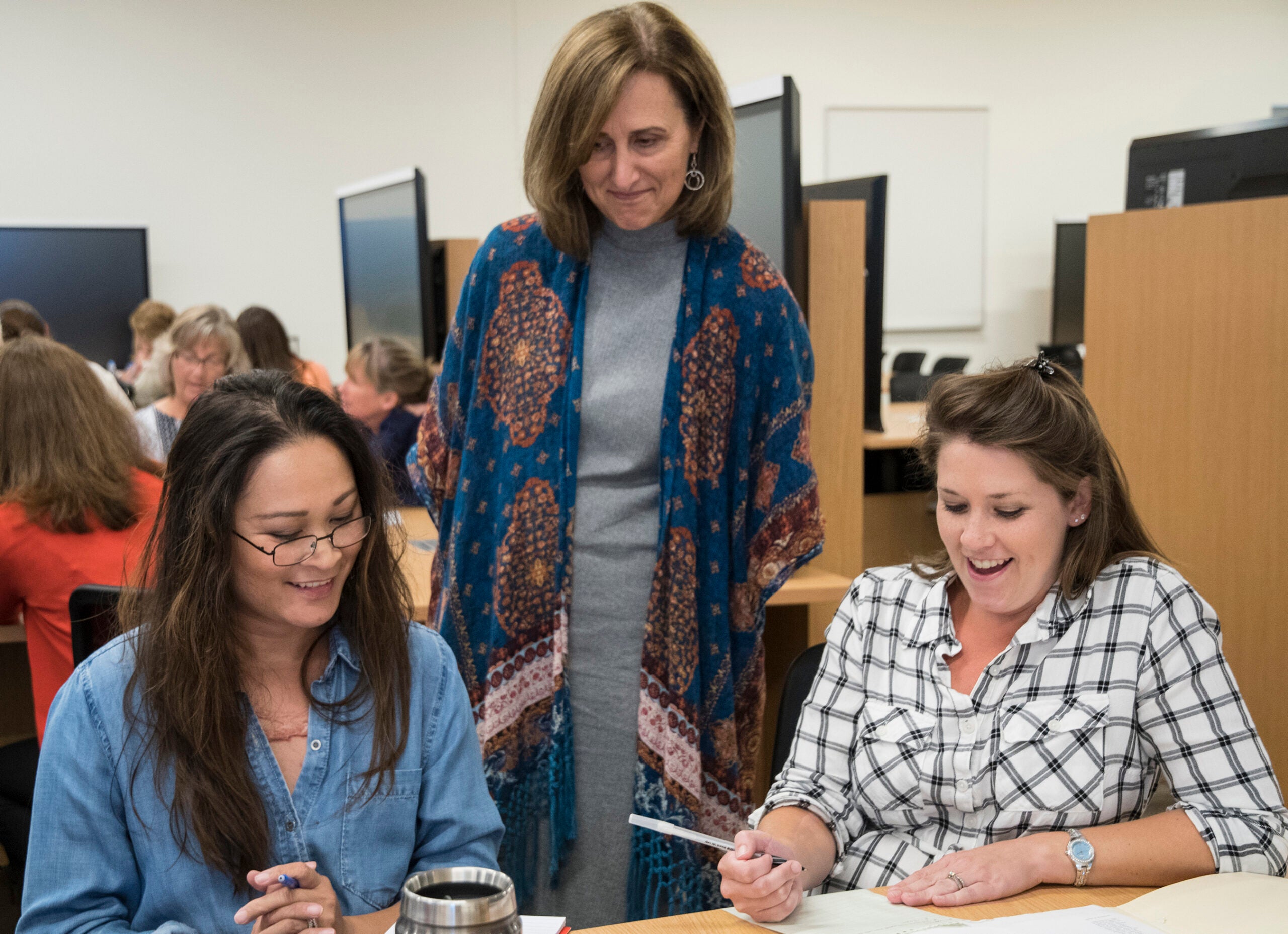PROVIDENCE, R.I., Sept. 25, 2017 — Nursing simulation technology has greatly evolved since Mary Fey, associate director of the simulation educator training program at the Center for Medical Simulation in Boston, struggled with ways to incorporate a mannequin into her teaching at the University of Maryland several years ago.
“I offered the most horrendous simulation class ever. I had about 30 learning objectives,” Fey said with good humor. “I had no idea what I was doing but I loved it. It had an element of ‘we are all in this journey together.’ ”
Fey shared her career expertise and personal evolution with more than 50 educators during the University of Rhode Island College of Nursing’s daylong Simulation Faculty Development Workshop at the newly opened Rhode Island Nursing Education Center in Providence.
The day began with a segment on the International Nursing Association of Clinical Simulation and Learning Standards of Best Practice led by Maureen Hillier, assistant clinical professor of nursing at URI, followed by a talk on opioid use disorder by Anita Jacobson, clinical associate professor at URI’s College of Pharmacy, and a live-streamed simulation and debriefing of a patient with such a disorder.
“Simulation coupled with clinical experience and classroom teaching is the trifecta to transform nursing education,” said Fey, who, after her rocky start, received formal simulation training at the Boston center that would alter the trajectory of her career.
What makes simulation so powerful is that it provides students with a safe place to make mistakes without the risk of harming a patient or failing a test. Students can make great strides when their cognitive and emotional levels are attuned, she said.
The pressure of putting knowledge into action in a simulation setting proves the fallacy of the notion that “if they know it, they can do it,” Fey noted. “Simulation is about application of content knowledge; it’s about teaching how to think like a nurse.”
Workshop participant Joe Gordon-Reznar, clinical manager at The Miriam Hospital, who works closely with the College on clinical placements and through the College’s Dedicated Education Unit for seniors, agrees. “The trick is applying the book knowledge in a real scenario. With simulation, we can get close to that and create opportunities for learning to be accelerated,” he noted, giving students a competitive advantage when they enter the job market.
Fey’s presentation and workshop focused on the debriefing that follows a simulation scenario and is where much of the learning occurs. She stressed the value of an approach to important conversations called “advocacy inquiry.”
The concept is about choosing the right words and beginning with the assumption that the other person is smart, capable, cares about their work and wants to improve. Fey had participants apply this approach when analyzing a video clip from the old TV sitcom “The Honeymooners,” in which one character fails spectacularly at reading the other’s temperature.
The approach works across curricula and in any meaningful conversation, Fey said, but is particularly valuable in simulation because it helps remove anxiety and fear of failure. Stressing “I” statements, the approach follows these steps:
- Preview: Describe the upcoming situation and what students can expect.
- Advocacy: Begin feedback with “I saw” statements, making factual observations without judgment or assumption.
- Advocacy: Move onto “I heard,” statements of factual observations.
- Inquiry: Ask “I wonder” to understand what the student was thinking at a particular moment.
- Learning: Ask the student what motivated an action to impart a lesson.
Gordon-Reznar embraces aspects of this approach with his staff and is a proponent of its worth “It creates a trusting environment, a more positive environment,” he said.
Sophisticated simulation education is a centerpiece of the Nursing Education Center, which boasts the latest in simulation technology and innovative teaching, placing URI at the nation’s forefront of nursing education.

